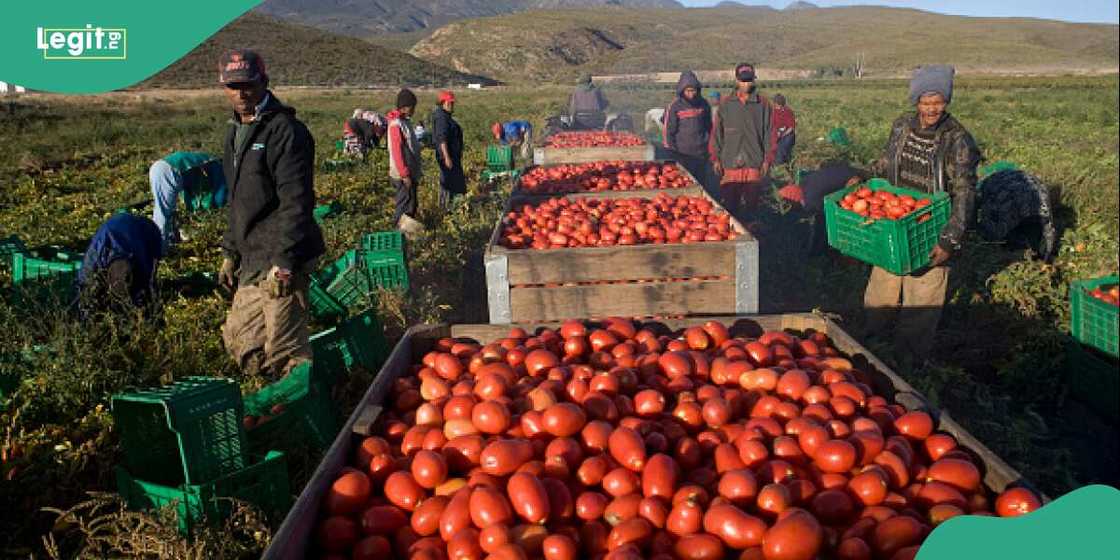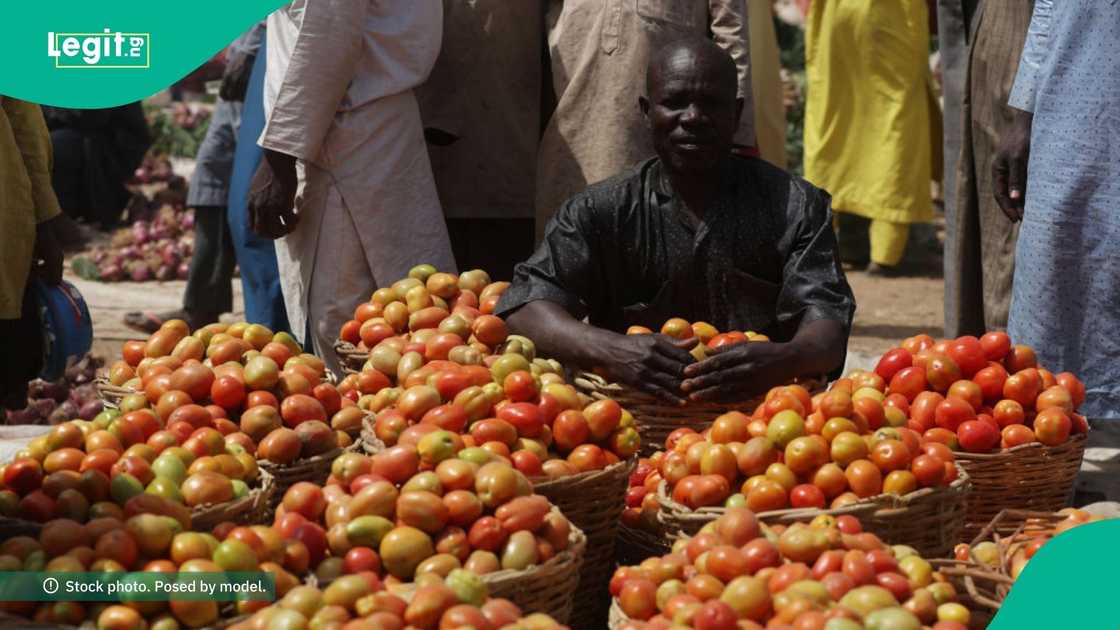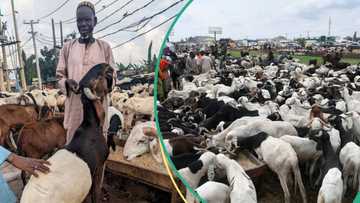Basket Of Tomatoes, Peppers To Sell For New Prices After Sallah Celebrations, Traders Give Reasons
- Tomato and pepper prices are on the rise again, and traders have confirmed up to a 100% increase in some markets
- The farmers and other players in the value chain have explained the reasons for the price hike and recommended solutions
- Meanwhile, tomato growers are also calling on the government to fully implement the national tomato policy in the interest of Nigerians
Legit.ng journalist Ruth Okwumbu-Imafidon has over a decade of experience in business reporting across digital and mainstream media.
The prices of tomato and pepper have increased, thanks to a recent flood that ravaged large farms in Mokwa town in Niger State.
This is the same flood that collapsed a major bridge connecting the northern states with southwest Nigeria, and disrupted petroleum supply during the just-concluded Sallah celebrations.
Farmers are lamenting the toll of the flood, which is said to have affected production and forced them to increase prices to make up for their losses.

Read also
Lagos State govt moves to tighten regulation on short-let rentals as annual revenue hits N264bn

Source: Getty Images
This price increase is also reported to have affected the Sallah celebrations, as many Muslim families had to cut back on their budget for the four-day celebration.
Basket of tomatoes, peppers to sell at new prices
Traders confirmed that a big basket of tomatoes, which sold for about N80,000, has now surged past N100,000, even selling as high as N150,000 in some markets in Abuja.
A large bag of peppers costs N260,000 compared to the earlier price of N80,000, while a small bag costs N110,000 instead of N23,000.
Ms. Emmanuella Chukwu, a caterer in Lagos State, confirmed to Legit.ng that the price increases had reached major markets in the state even before the Sallah celebrations.
She explained that at her last check, a crate of healthy-looking tomatoes sold for N30,000, while a medium-sized basket of tomatoes sold for N70,000.
For those who buy the broken tomatoes, referred to in Lagos market parlance as 'esha', a crate sold for as high as N22,000.
For peppers, a bucket of pepper sold for over N15,000, while a bucket of tatashe or bawa sold for N12,000.
Traders give reasons for the price increase
Speaking about the situation, a tomato seller at Kabusa market, Mohammed Umar, warned that the price would increase further in the coming weeks and months.
He explained that the flood had reduced the available quantity of tomatoes and peppers, causing a demand-supply imbalance and higher prices as a result, the SUN reports.
He added that the collapsed bridge has also affected logistics for trucks moving from the north to the south, increasing transportation costs and prices of the goods.
The National President of the Tomato Growers Association of Nigeria, Abdullahi Ringim, noted that price increases for tomato and pepper are common at this time of the year as they are seasonal products.
Note that farmers had urged Nigerians to stock up on the items around February 2025 when there was a glut and prices crashed.
Scarcity looms as Tomato Ebola affects thousands of farms

Read also
Fuel scarcity looms in FCT, several states as bridge collapse disrupts supply of petroleum products
However, other factors have also contributed to the current scarcity and price increase, especially the outbreak of the tomato ebola.
Ringim explained that the outbreak of the tomato pest known as Tuta absoluta or tomato ebola, severely affected tons of crop yields.
Legit.ng earlier reported that a tomato Ebola outbreak affected many farms in Plateau, Kaduna, and Kano states.
Ringim noted that despite reporting to the Ministry of Agriculture, nothing had been done to help the farmers combat the challenges and save their harvests.
“So, with respect to the tomato ebola, we have each year warned that by the time it manifests in a particular farm, it is already late. So, there should be subsidisation in a way that farmers will have the chemical and the sprayers ready, long before the problem occurs. By the time you identify one farm, the following day it would have spread to ten farms, in two days, it will wipe out the entire farms because of the nature of the disease.”
Stakeholders list other reasons for the price increase
Abdullahi Ringim further explained that when the farmers have to address the pests and other challenges by themselves, they pass the costs on to the traders and the consumers.
He added that the increased transportation costs due to the increase in fuel prices also affect the price of the product for the final consumer.

Source: Getty Images
Since the products are perishable, the players along the value chain move quickly to get them to the final consumers, and this translates into additional costs along the supply chain.
He said:
“Of course, by the time you add the cost of transportation, the money you pay as bribery to the road marshals, the money you pay officially as levies and taxes that are illegal because you are plying federal roads. The price of tomatoes will have to go up. It’s a natural phenomenon.”
He added that the federal government’s delay in fully implementing the national tomato policy has also led to continued importation of tomatoes at high prices because of the exchange rate.

Read also
Petrol marketers take bold step to curb losses as Dangote, NNPCL continue to reduce fuel prices
He expressed optimism that prices would go down when the harvests enter the market after the rainy season.
Sani Danladi, the Chairman of Kano State Tomatoes Farmers, projected that the prices should reduce between August to September when there is a new influx of harvest.
FG launches high-yield tomato and pepper seedlings
Legit.ng previously reported that the federal government had unveiled two tomato cultivars named HORTITOM4 and HORTITOM5, and two yellow aromatic pepper cultivars – HORTIPEP1 and HORTIPEP2.
All four high-yield varieties are the product of research by the National Horticultural Institute (NIHORT), and have been approved by the National Committee on Naming, Registration and Release of Crop Varieties, Livestock/Fisheries on April 15, 2025.
NIHORT explained that the seedlings are adapted to all kinds of farming environments, have a shorter maturity period, and can increase crop yield by up to 300%.
Proofreading by James Ojo, copy editor at Legit.ng.
Source: Legit.ng



